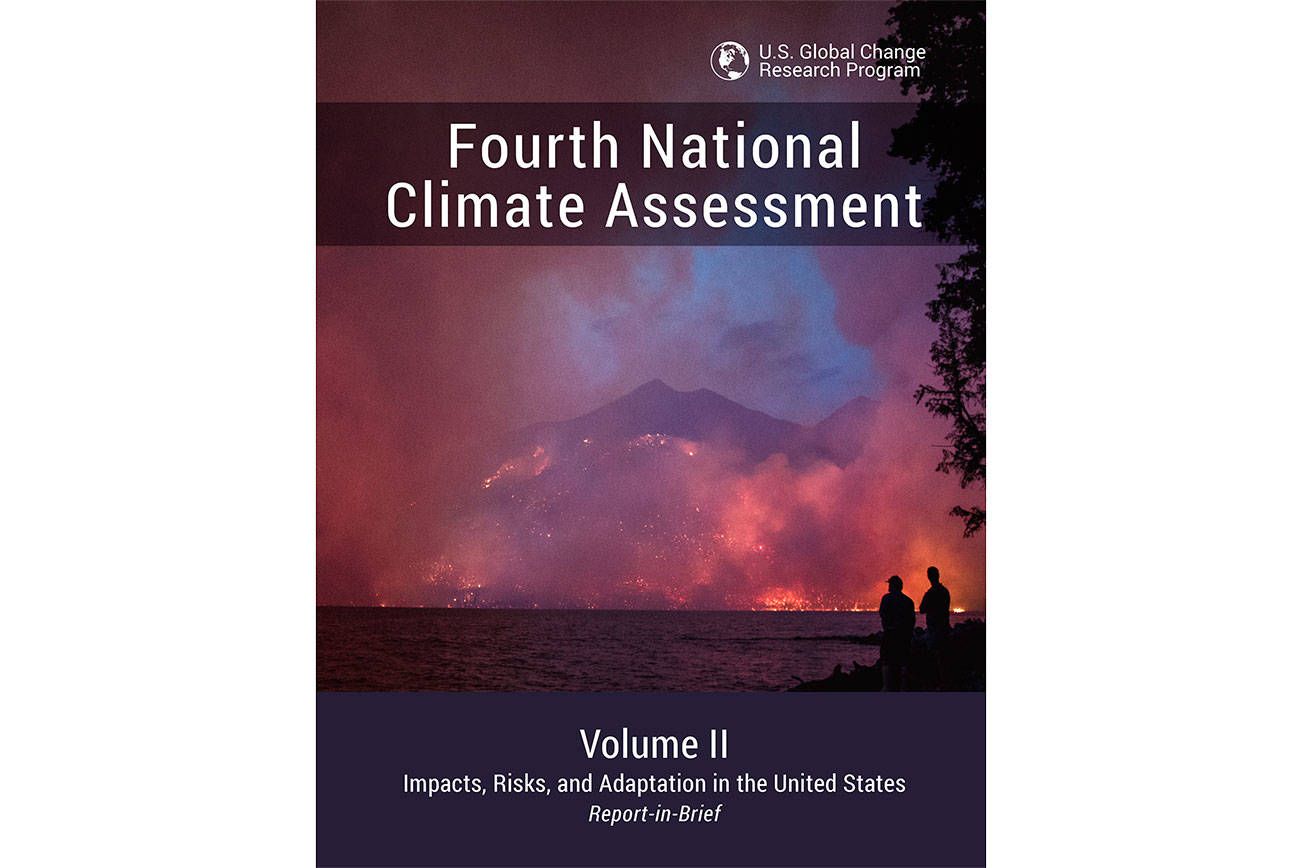The following was written by Jeff Duchin, MD, Health Officer, Public Health – Seattle & King County for Public Health Insider:
Last week, the US government released a report, the Fourth National Climate Assessment, which describes in detail the alarming, anticipated impacts of global climate change on our nation and our region, including the natural environment, agriculture, energy production and use, land and water resources, transportation, human social systems, biological diversity, and human health.
There are numerous harmful human health effects of climate change expected in our region, some of which we’re already experiencing.
Increases in temperature, changes in ocean conditions and precipitation, and more intense extreme weather events increase many health risks. The frequency and severity of poor air quality is expected to increase, including wildfire smoke and ground level ozone pollution. We should expect an increase in respiratory disease and increased risk of heart attack, stroke, and possibly some types of cancer, as well as an increase in heat-related deaths. The frequency and severity of allergic illnesses, including asthma and hay fever are also expected to increase. We should anticipate increased exposure to waterborne and foodborne diseases, affecting food and water safety. Changes in the geographic range and distribution of disease-carrying insects and pests globally, across the US and locally will expose more people to ticks that carry Lyme disease and mosquitoes that transmit viruses such as Zika, West Nile, and dengue.
Extreme weather and climate-related events can have lasting mental health consequences in affected communities, particularly if they result in degradation of livelihoods or community relocation. Some populations including older adults, children, low-income communities, and some communities of color may be disproportionately affected by, and less resilient to, the health impacts of climate change.
In the Northwest, our social safety net providers are already stretched thin with current demands. Healthcare and social systems will likely be further challenged with the increasing frequency of acute events, or when cascading events occur.
Children and youth, in general, will likely experience cumulative physical and mental health effects of climate change over their lifetimes due to increased exposure to extreme weather events (such as heat stress, trauma from injury, or displacement) and increased toxic exposures (such as increased ground-level ozone pollution in urban areas or increased risk of drinking water contamination in rural areas).
In addition to an increased likelihood of hazards and epidemics, disruptions in local economies and food systems are projected to result in more chronic health risks. Income loss associated with climate impacts will likely increase the risk of people experiencing food insecurity.
But these immediate health impacts are only part of the story. Multiple other effects of climate change, such as economic, social, environmental and psychological factors, are also major drivers of poor health outcomes. Future climate change is expected to further disrupt many areas of life, exacerbating existing challenges posed by aging and deteriorating infrastructure, stressed ecosystems, and economic inequality. Examples of key climate change impact areas in the Northwest along with challenges and opportunities and success stories for reducing risk can be found at https://nca2018.globalchange.gov/chapter/24/.
The bottom line: climate change is the most serious health threat currently facing mankind.
What can be done?
The first step is understanding the profound and serious nature of the threat climate change poses for us and for future generations. As the 2018 National Climate Assessment notes, future risks from climate change depend primarily on decisions made today – both personally and by society. Despite some progress in planning for climate change, more immediate and substantial global greenhouse gas emissions reductions, as well as regional adaptation efforts, are needed to avoid the most severe consequences in the long term. Planning for impacts of climate change that are already occurring and slowing down the current climate change trajectory should remain a top public health priority.
For information about what you can do to help prevent the devastating impacts of climate change, see the following resources:


